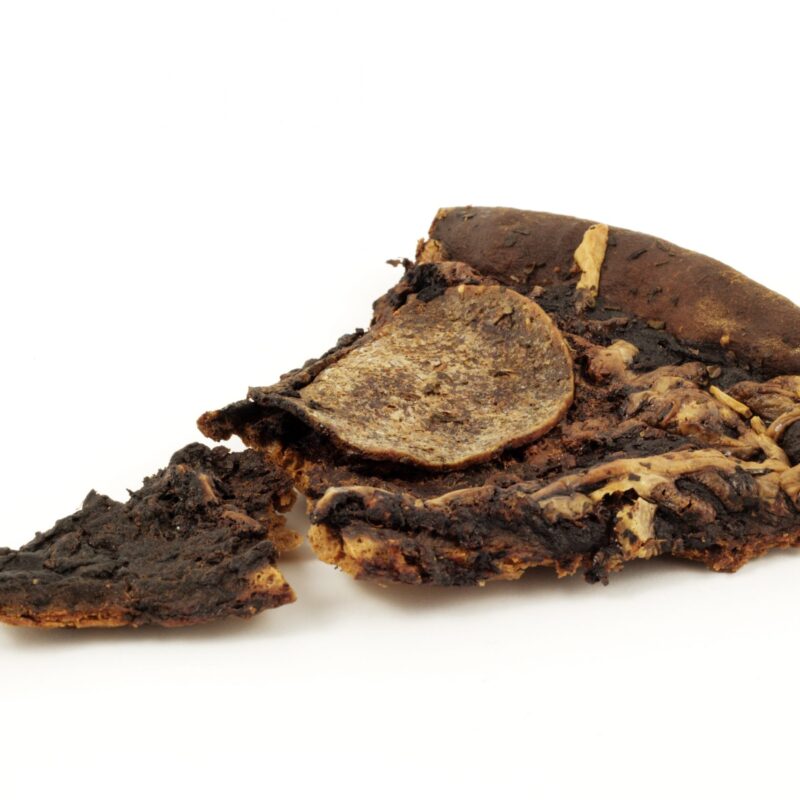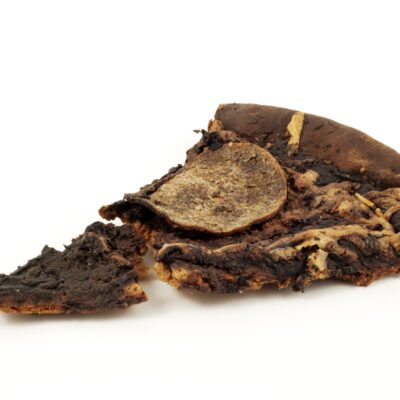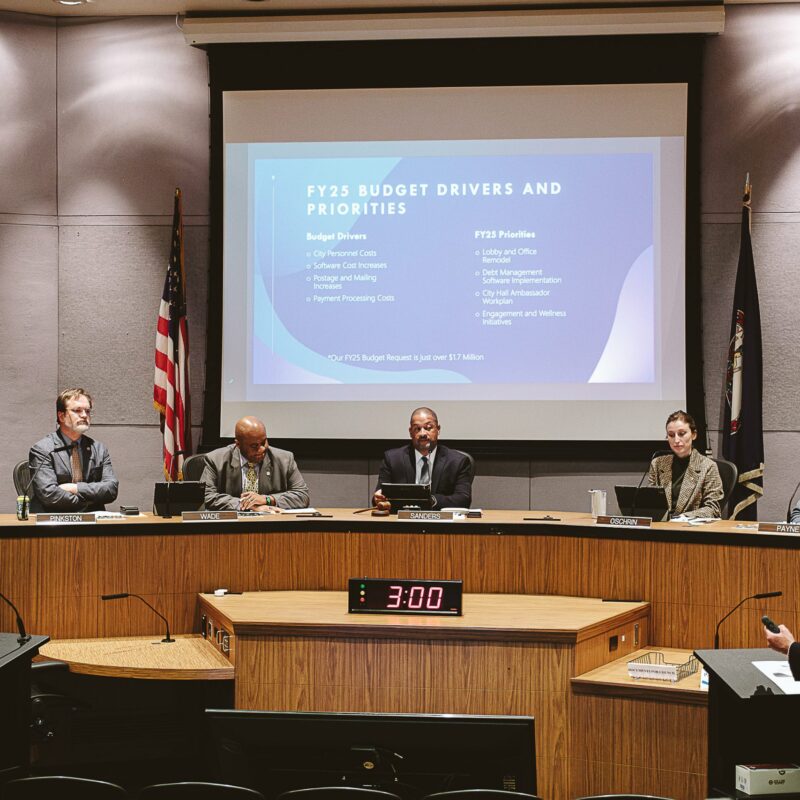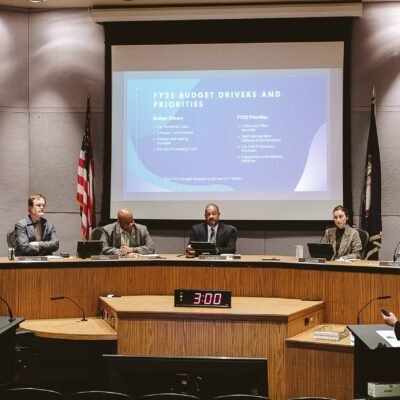1994

Following nearly four years of recording and touring together, the band Uncle Tupelo (and, notably, the songwriting team of Jay Farrar and Jeff Tweedy—a scruffy, midwestern Lennon and McCartney) disbands. Farrar forms Son Volt; Tweedy and the rest, including bassist John Stirratt, form Wilco.
Key track: "Acuff-Rose," a fiddle-driven tune that puts the "country" in "alt-country," a genre of music that mixes hipster with Hank Williams. "Acuff" remains a staple of Tweedy solo sets.
1995

Wilco releases A.M. on Reprise, a record imprint of Warner Bros. A.M. remains firmly planted in the soil of country rock, and portends little of the creative uprooting that Wilco would perpetrate in the future.
Key track: The reverb-heavy blues tune, "Casino Queen."
1996

Wilco starts down the long road of creative lineup shuffling, with Tupelo hanger-on Max Johnston ditching the band and drummer Ken Coomer forming a side project with bassist Stirratt and guitarist Jay Bennett called Courtesy Move. The band also releases Being There, a double LP that nabs a four-star review from Rolling Stone and nabs steel guitarist Bob Egan for the record.
Key tracks: "So Misunderstood" and "Sunken Treasure," tracks that hint at the noise explosions that will make the band’s live reputation.
1998

The band gets together with folk-meets-punk musician Billy Bragg to record a batch of unfinished Woody Guthrie songs, releasing a record titled Mermaid Avenue. Meanwhile, Egan leaves the band. If creativity means switching lineups, then Wilco is brilliant.
Key tracks: Though Bragg and Tweedy alternate vocals, the latter’s take on "California Stars" and "One by One" get at the country and folk heart of his own music.
1999

How marketable is Wilco? Reprise begins to wonder as the band releases Summerteeth, an album that sees the first heavy use of words like "atmospherics" and "ambience" in Wilco reviews.
Key track: "A Shot in the Arm" is country rock by way of The Who circa "Won’t Get Fooled Again," complete with haywire synthesizer noises.
2000

The year the levee breaks: Drummer Ken Coomer leaves Wilco and is replaced with current drummer Glenn Kotche. While recording fourth record, Yankee Hotel Foxtrot, guitarist Jay Bennett is fired from the band after creative head-butting with his colleagues, and Reprise deems that Foxtrot is a commercial risk. Wilco buys the master tapes of the recordings from the label and are dropped, free to shop their record around. The band also releases Mermaid Avenue Volume II.
Key track: "Airline to Heaven" pairs a bit of Wilco’s old country kick with a sleek modern rock sound. The slide guitar solo on this tune doesn’t just have boots—it has spurs.
2002
After songs are leaked on the Internet (and after they inspire much critical jibber-jabber), Nonesuch Records—also an imprint of Warner Bros.—decides to release Yankee Hotel Foxtrot, now considered a masterpiece of modern rock. Following the record’s release, filmmaker Sam Jones releases I am Trying to Break Your Heart, a film documenting Wilco’s struggle to release the record they envisioned (as well as fights between Tweedy and Bennett).
Key tracks: The rattling, shambling mess of "I am Trying to Break Your Heart" and the wrenching strings-and-synth number, "Jesus, Etc." Not to mention the radio-ready "Heavy Metal Drummer," another live staple.
2003

Tweedy, Kotche and all-purpose avant-garde muse, Jim O’Rourke, release an album on the Drag City record label under the name Loose Fur. To our knowledge, nobody quits Wilco.
Key track: "Laminated Cat" gathers momentum and bulk like a snowball, ending with a clattering guitar and a percussive flourish.
2004

A lengthy wait for the follow-up to Foxtrot ends with the release of A Ghost is Born, a record that tidies up the noise and multiple rhythms of its predecessor but suggests that the band is headed for a Neil Young-meets-Phish guitar sound. In the same year, Chicago Tribune writer Greg Kot publishes a book entitled Wilco: Learning How to Die, documenting the band’s career and Tweedy’s addiction to painkillers.
Key tracks: "At Least That’s What You Said" follows nearly two minutes of hushed guitar strumming with a broken glass guitar solo that trails off to end the song; "Spiders (Kidsmoke)" combines Kraftwerk and ’70s arena rock into a near-instant live favorite.
2005

Now in their current lineup (including pianist Mikael Jorgensen, multi-instrumentalist Pat Sansone and guitarist Nels Cline), Wilco releases Kicking Television, a live album recorded at Chicago’s Vic Theatre.
Key track: "Via Chicago," baby! A song from Tweedy that shows a little hometown love gets a dynamic live treatment, and suggests that the Wilco lineup is fine-tuned, able to create whirlwinds of feedback and stop them on a dime.
2006

Loose Fur releases a second album entitled Born Again in the U.S.A. People continue to wonder why more time can’t be spent on Wilco rather than oddball side projects. Nobody leaves!
Key track: A simple choice. Amidst a few loopy guitar lines that make for somewhat less palatable songs, "The Ruling Class" is an instantly enjoyable pop tune, complete with a beautifully ascending guitar hook, whistling and lyrics about a crack-smoking messiah.
2007

Wilco releases Sky Blue Sky . Gone are the textural and ambient experiments of Foxtrot and Ghost. Instead, Cline’s fret-spanning, jazz-meets-punk guitar solos suggest that the fellows in Wilco have been a guitar band all along.
Key tracks: "Impossible Germany" has some of the best guitar riffs this side of KISS, while "Walken," a piano-pop shuffle refined during tours, gives fans everywhere a pep in their step.
Reporting by Lily Robertson.





